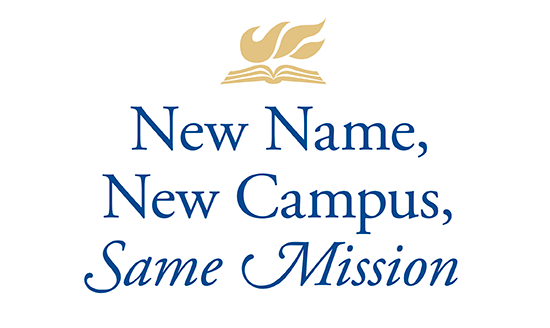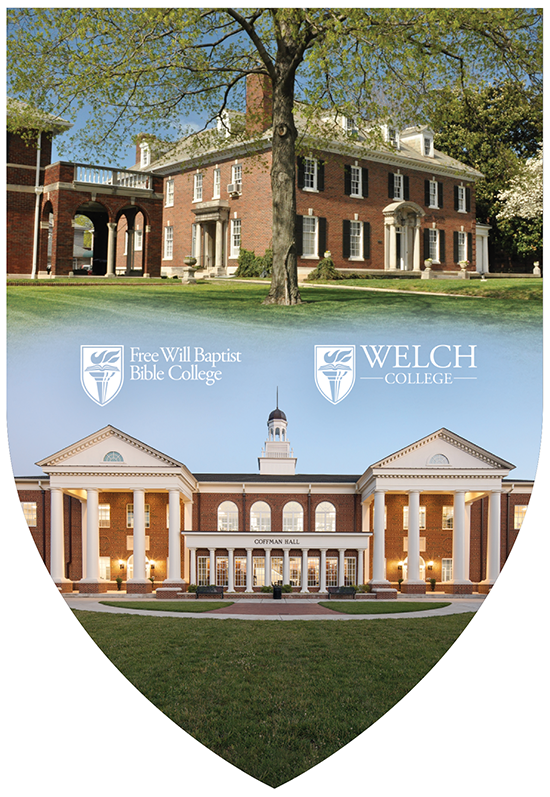
October-November 2021
Celebrating 100 Issues of ONE Magazine
------------------
|





The college president reflects on
a hundred issues at Welch College...
By J. Matthew Pinson
April 2005, the date of ONE Magazine’s first issue, seems a world away for Welch College. Some of the best and most difficult of times for the denomination’s college have occurred since 2005, yet God has providentially guided us to fulfill our mission as we have grown, both qualitatively and quantitatively.
A Strategic Plan
As I reflect on God’s care and protection, I’m amazed by and thankful for His leadership. The year 2005 saw the rollout of a strategic plan with bold goals. After the board shelved the idea of relocation in 2001, when I was elected the college’s fifth president, they began thinking about relocation once again. With the help of Colonel Mark Johnson (the son of Welch’s founding president L. C. Johnson and his wife Ruth) and fundraising consultant Clark Dickerson, we conducted a new feasibility study regarding campus relocation. The results prompted Welch leadership to recommend a fresh start in the effort to relocate, the vision of Dr. Tom Malone many years before.
Great Recession
We located to 66 beautiful acres in Gallatin, Tennessee—perfect for a new campus. I’ll never forget the feeling when we signed the closing documents on the property just weeks after the 2008 financial bailouts in Washington, D.C., that signaled the onset of what came to be known as the Great Recession.

In the fallout of the recession, I wondered why God had led our leadership team and board unanimously to purchase this property. The real estate market in Middle Tennessee locked up tight, and we were unable to sell the West End Avenue property in midtown Nashville. Higher education was hit hard by the Great Recession, including Welch. Many private colleges closed their doors. Our enrollment, which reached a 22-year high in 2007, plummeted.
These became some of the most difficult years financially in the college’s history. In addition to the enrollment and financial difficulties other private colleges faced, we also experienced a crisis with our 50-year-old defined benefit pension plan, which was “underwater.” We had to borrow money to buy out the plan and pay our retirees and other pensioners what they had earned.
Focus on Mission and Excellence
During these difficult years, with no hope in sight from a human perspective, we began carefully and systematically working on our mission and our excellence, finding every way (that didn’t cost money) to double down on our mission of educating leaders to serve Christ and His Church, of mentoring students, of making our processes better and more excellent, and at increasing
retention and graduation rates.
Over four tough years, we took huge strides forward in every metric used by the higher education community, and people began to take notice. Our rankings in publications like U. S. News and World Report’s Best Colleges continued to improve. Through the valley of the Great Recession, we kept the deep, abiding sense the Lord was leading us with His own hand, comforting us with His rod and staff, and that He would bring us through.
New Name
In summer 2011, the college proposed a name change at the National Convention. The name proposed several years earlier had been voted down, but we sensed the need to pursue a name change again. Too many students were being rejected from competitive graduate programs or barred from foreign countries closed to traditional missions. People didn’t realize we had grown into a comprehensive Christian college centered on a robust biblical worldview curriculum.
We considered the name “Johnson,” after our beloved founding president, Dr. L. C. Johnson. We quickly abandoned that idea because of the existence of nearby Johnson University, also accredited by both our institutional accrediting agencies. After considering several other names, the college decided on Welch College, after John L. and Mary Welch. The secretary of education of the National Association, John—perhaps more than anyone else—fostered the idea of a Free Will Baptist college. His wife Mary also was instrumental in the founding years of the institution. At the 2012 convention, the vote to change the name passed by 97%.
New Campus
In fall 2012, on the heels of the name change, enrollment rebounded, and we began to see the light of day. Two years later, the college found a buyer for the West End property, and in 2015, we celebrated groundbreaking on the new campus. As we looked back over the ten years since the initiation of the strategic plan, we realized every strategic initiative had been met, and we had begun construction of a new campus—the greatest strategic initiative of them all. In 2017, after two years of construction, we opened the new campus in Gallatin.
Situated in a beautiful and growing suburban community in Sumner County, Tennesee, the campus consists of beautiful red brick, white-columned, Jeffersonian-style buildings in a traditional academic quadrangle. Building interiors are equipped with state-of-the-art technology and conveniences. The new campus has won architectural awards from two national magazines: American School and University and Learning by Design. We thank God for this new blessing that is helping us grow into the future.
COVID-19
The COVID-19 pandemic hit hard in spring 2020. The months of lockdown proved especially difficult for private colleges where the full-time student body largely consists of dormitory students. Yet, given the present unforeseen circumstances, we have managed to survive and do well. Had the pandemic not depleted enrollment by 15%, Welch would have marked the largest enrollment in 37 years. And, though leadership projected a $765,000 deficit for the 2020–2021 fiscal year, we ended with a deficit under $100,000. Despite COVID-19, Welch enjoyed a higher enrollment than 28 out of the last 37 years.
Welch Divinity School
As the world slowly recovers from the pandemic, we have turned our focus to the Master of Divinity (M.Div.) degree in the new Welch Divinity School, which will open in the fall of 2021. As with all new academic programs, it will take time to launch the program (especially with lingering COVID-19 concerns), but the M.Div. will bear great fruit in the future. We are amazed by how many undergraduate students are interested in continuing the M.Div. through the accelerated B.A. to M.Div. program made possible by the nearly $500,000 grant from a private charitable foundation.
Mission-Driven
Through a “hundred issues” of challenges, changes, and achievements, Welch College has remained committed to our distinctive founding mission. Recently, Welch hosted ten-year reaffirmation visits from both of our accrediting agencies, the Southern Association of Colleges and Schools (SACSOC) and the Association for Biblical Higher Education (ABHE) Commission on Accreditation. The ABHE visiting team gave Welch a formal commendation on its commitment to the mission of Christ-centered higher education, and the way the mission is integrated throughout the institution. This commitment has been embraced, not only by the board and administration, but also by faculty, staff, and students. The ABHE vice president observed this is a rare commendation from ABHE.
We are excited about how God will use Welch College in the future as we stay focused on our distinctive Christian and Free Will Baptist mission. I believe we are poised to enter the most fruitful era of mission fulfillment in the history of Welch College. It is my prayer that God will continue to use Free Will Baptists to support this vital ministry of educating Free Will Baptist leaders to serve Christ, His Church, and His world in this complex, secularizing age.
About the Author: J. Matthew Pinson is the fifth president of Welch College. Learn more: www.welch.edu.
|
|

